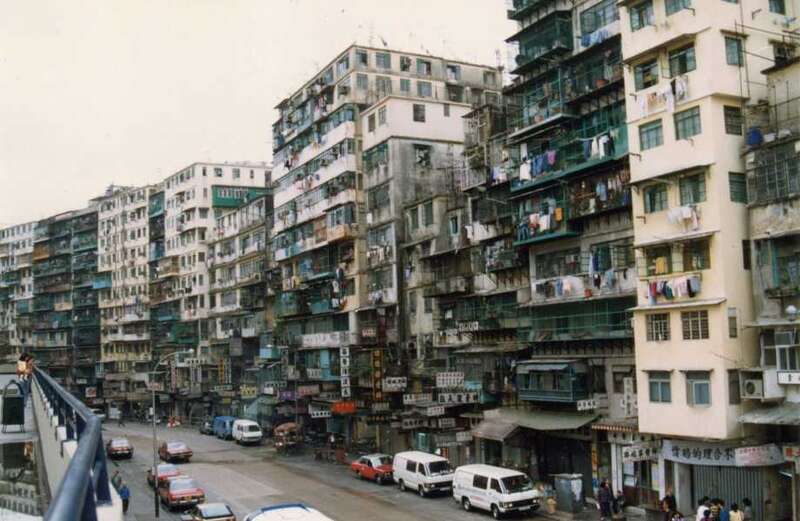A SPRAWLING fortress just outside Hong Kong was once the most crowded city on Earth.
With some 50,000 people crammed into a few blocks of concrete jungle, Kowloon Walled City was an ungoverned place plagued by lawlessness.





The city was a wonder in itself - with thousands of families and businesses housed in some 300 interconnected high-rise buildings across 6.4 acres of land.
Haunting pictures show the grim reality of the concrete jungle with narrow tower blocks packed tight against each other.
Everything was poorly constructed without a single architect planning the layout.
 I'm a property expert - my guess for the cheapest time to buy a home this year
I'm a property expert - my guess for the cheapest time to buy a home this year
Rooftops were the only place inside the crammed-up walls of the city where people could escape their harrowing windowless flats built below.
Thousands of corroding metal wires and leaking plastic water pipes ran along walls and ceilings.
Hundreds of alleys - barely wider than six feet - and a maze of dark corridors covered the city block.
Some were so narrow that people had to walk sideways to pass through them.
Ungoverned by health and safety regulations, the quality of life and sanitary conditions were far behind the rest of Hong Kong.
Back in the day, the place served as a Chinese military post before eventually coming under British rule.
However, during the Second World War, parts of the city were demolished to provide building materials for the construction of a nearby airport.
After the war ended the city saw a dramatic influx of Chinese immigrants with squatters filling in the place to get sheltered.
For 40 years between the 1950s and 1990s, the massive complex evolved into a squatters' village - accommodating a staggering 50,000 people inside the walled city.
Due to a lack of housing, people started to construct as many buildings as possible on the limited piece of land.
 Inside Camilla's £850k 'guilty pleasure' country pad - and Charles 'hates' it
Inside Camilla's £850k 'guilty pleasure' country pad - and Charles 'hates' it
And with both Chinese and British governments willing to take responsibility for the place, the concrete jungle was soon taken over by anarchy.
The city soon fell into the hands of the Chinese mafia known as Triads who ruled over the place for more than 20 years.
And the place became a safe haven for prostitution, gambling, and drugs.
By the early 1980s, brothels, casinos, cocaine parlours and opium dens started to operate in the open public, while food courts serving dog meat stew became increasingly famous.
As no regulations were enforced in the city, setting up a business without licenses was easy.
Rents, primarily controlled by those with "squatter's rights", were low compared to the rest of the city.
This attracted many people to set up their shops, especially dodgy dentists and other healthcare professionals who could escape prosecution if anything went wrong with their patients.
Other businesses, such as small shops and salons, capitalised on the cheap, lawless society of the walled city.
Eventually, over time both the British and Chinese authorities found the city to be increasingly intolerable - and decided to evacuate the settlement.
But despite the city's grim reality, the inhabitants, especially those residing on the upper levels, found the living peaceful.
Many of them protested and said they were happy living in such conditions, but the government forced the settlers to evacuate the walled city in 1992.









































